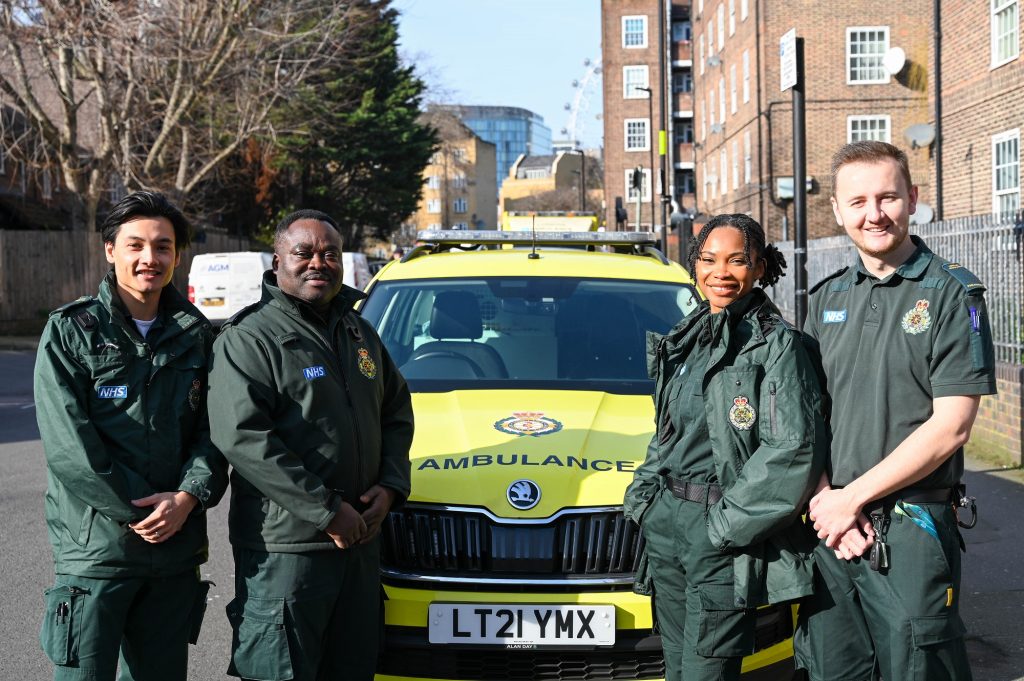London Ambulance Service celebrates a decade of specialist care for mental health patients
The pioneering London Ambulance Service team that brings together mental health experts and paramedics is celebrating a decade of providing specialist mental health care across the capital.

Ten years ago this week, a small number of mental health nurses began working in the London Ambulance Service’s emergency control room, providing assessment and advice to patients in a mental health crisis. Building on the success of this, in 2018 the Service teamed up paramedics and mental health clinicians in a fast response car.
Working together in this way, the specialist team can ensure patients with mental health conditions get appropriate treatment quickly and, where possible, avoid the distress of attending busy A&E departments if they could receive better care elsewhere.
Today, the Service has a team of more than 40 clinicians including mental health paramedics, experienced nurses, social workers and occupational therapists.
These specialist practitioners continue to work across London in mental health joint response cars and now also work in the Service’s emergency control room, providing remote clinical assessment to patients with mental health issues and referral into services closer to home.
Carly Lynch, Consultant Nurse for Mental Health at London Ambulance Service, said: “We are delighted to mark this 10 year milestone. The mental health joint response team wraps expert care around the patient and brings specialists in mental and physical health to people in need. As more people experience mental health issues, we are delighted to be able to provide this service, and I’m truly proud that we were ahead of the curve when we launched 10 years ago.
“Thanks to the incredible work of our specialist clinicians we now only take 18% of patients experiencing a mental health crisis to A&E. We know that for many people with mental health conditions, A&E is not the best place for them to receive care, and the busy environment of a hospital can be traumatising for our patients. We also know their needs can often be met more effectively in their own home, in the community or alternative services.
“But it’s vital that our patient’s physical and mental health is treated as a whole. Nearly 50% of all mental health patients will have a physical health condition and on average, those with a serious mental illness live up to 20 years less compared to the general population.”
Patients with mental health issues make up a growing proportion of the patients London Ambulance Service cares for. More than two million Londoners are reported to experience poor mental health every year and our team of specially trained mental health clinicians provide expert and compassionate care to around 9,000 patients a month.
Dr Fenella Wrigley, Chief Medical Officer at London Ambulance Service, said:
“The needs of our patients are changing as the population gets older and more people living with a range of long-term complex conditions, including mental health problems.
“Since the first nurses started working here ten years ago, we have continued to adapt to offer more individualised clinical responses alongside the traditional ambulance.
“We continue to train all our paramedics so they can provide more assessments, treatments and other interventions to better meet the needs of Londoners and ensure that every patient gets the care they require.”
The mental health joint response car has been an integral part of developing care for patients with mental health issues in recent years and have previously won a HSJ Patient Safety Award.
The unit was initially launched as a single car in south east London in November 2018 and has now expanded to six response cars across London. 28,000 patients have been treated by the team since the unit expanded in February 2020 during the Covid pandemic.
Last year LAS also mobilised bespoke ambulances to attend patients in a mental health crisis. The ambulances, created in partnership with mental health experts and charities, have been designed to be more comfortable and create a tranquil environment for patients in a mental health crisis.

Follow us on social media: